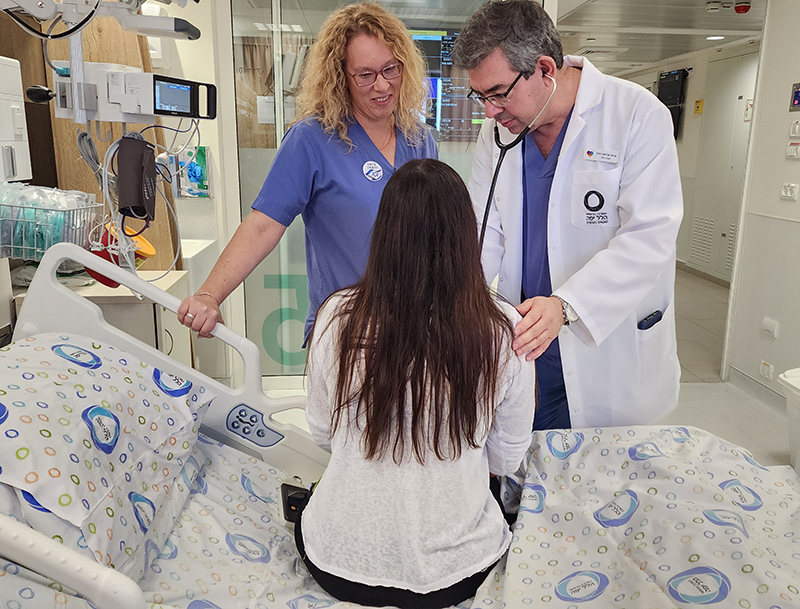Etti, 49, from Hadera, has three sons. Two of them were called up to serve in the war. Her oldest is a reserve soldier in the Givati Brigade and her middle son - a combat soldier in the Golani Brigade, who was called up on October 7th to fight in southern Israel, is now fighting in Gaza and has not been in touch for three weeks. Over the past month, Etti thought that she was coping bravely with the situation and that despite the stress that is only natural, she was doing relatively well.
About ten days ago, while she was at work, she began feeling unwell and fainted, but did not think it was important. A few days later, while sitting around with her friends, she received a message on WhatsApp from her son's commander saying that he had been seriously wounded in Gaza. In a second, she began to feel her heart beat rapidly and her knees began to shake. She then lost consciousness. She was taken by ambulance to Hillel Yaffe Medical Center, and due to the results of her ECG had emergency cardiac catheterization. In the procedure, they found that her coronary arteries were normal and what Etti had experienced was, in fact, broken heart syndrome. She was admitted to the Cardiac Intensive Care Unit.
Since the events of October 7th and the start of Iron Swords, there is virtually nobody in Israel that has not experienced stress, distress or anxiety due to the situation. Hillel Yaffe Medical Center reports that over the past two weeks they have seen a significant rise in the number of people, particularly young women in their fifties, coming in with complaints typical of a heart attack - whether experiencing a true heart attack or broken heart syndrome, which in professional jargon is known as Takotsubo cardiomyopathy.
“This syndrome is a medical condition expressed as a temporary impaired function of the heart muscle, which generally occurs following severe emotional stress such as death of a loved one, being fired from a job, divorce and the like. Stress is known to increase the risk of developing various diseases, including heart disease. With this syndrome, in response to the stress, the body produces large amounts of adrenaline, which rapidly reach the heart muscle and lead to toxicity, causing it to temporarily weaken, like what happens during a heart attack,” said Prof. Ariel Roguin, Cardiology Division Director at Hillel Yaffe Medical Center.

Prof. Ariel Roguin and nurse Tal Vardi examining Etti in the Cardiac Intensive Care Unit at Hillel Yaffe
“Heart disease is known and more common among men. Now, for the first time, there are more women hospitalized in the Cardiac Intensive Care Unit than men. These are young women and the common denominator for all of them is that they are mothers of soldiers serving in combat units in Gaza. All of them complained of symptoms similar to those experienced during a heart attack such as sharp chest pain, difficulty breathing and increased sweating, which generally appear minutes to hours after exposure to the stressful event,” said Prof. Roguin. “For these patients, the changes in their ECG are similar to those in myocardial infarction, and they are taken in for cardiac catheterization to examine how the heart muscle contracts and whether any of the arteries are blocked. In most cases, no blockages are observed, and therefore we can almost definitively determine that they have broken heart syndrome. Some of the women, however, did indeed have a myocardial infarction due to obstruction of an artery, although the structure of the artery was relatively normal. These women experienced a classic myocardial infarction, this time not due to risk factors, but due to stress.
How is it treated?
Treatment is with medication to improve heart function and cardiac follow-up. Note that despite the stressful feeling of the women who have had this syndrome, in most cases broken heart syndrome resolves on its own, without leaving any signs, and the heart returns to normal function several days later.
“In this very difficult time, try to relax, either through physical activity, meditation or anything else that makes you feel good. On the other hand, heart disease may also affect women, so if you feel severe chest pain, difficulty breathing or any unusual feeling, it is important to seek immediate medical attention,” said Prof. Roguin.











.jpg?BannerID=39)

